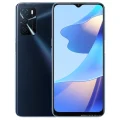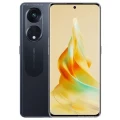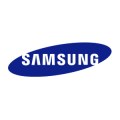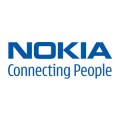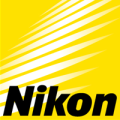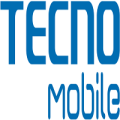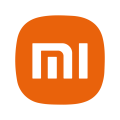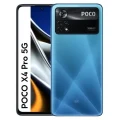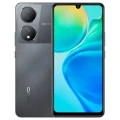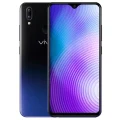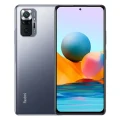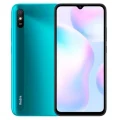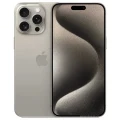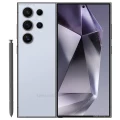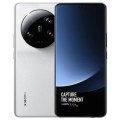- Awesome page
- Latest Mobile
- Smartphones
- Oppo Reno
Oppo Reno
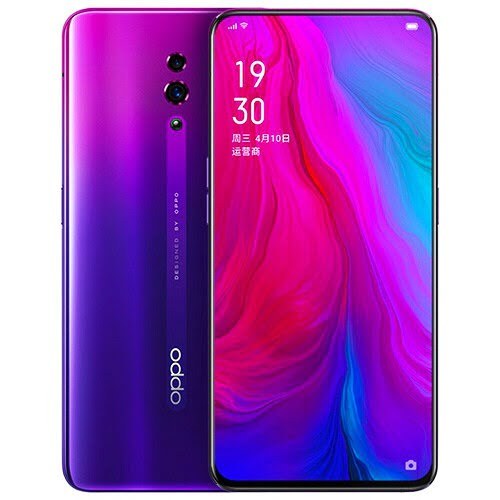


Oppo Reno Price in Bangladesh
The Oppo Reno Price in Bangladesh is BDT 49,990. This model comes with 8GB of RAM and 256GB of storage, providing substantial memory and storage capacity. The Oppo Reno reflects its premium features and high-performance capabilities, making it a strong contender for those seeking a high-end smartphone.
Specifications
General
| Model | Oppo Reno |
| Announced | 2019, April |
| Released | 2019, April |
| Status | Available |
| Official price | 6GB 128GB ৳49,990 |
| Unofficial price | 6GB 256GB ৳33,000 / 8GB 256GB ৳36,000 |
Design
| Dimensions | 156.6 x 74.3 x 9 mm (6.17 x 2.93 x 0.35 in) |
| Weight | 185 g (6.53 oz) |
| Colors |
Ocean Green, Jet Black, Nebula Purple, Pink Mist, Coral Orange, Inspiration Edition |
Network
| Technology | GSM / CDMA / HSPA / EVDO / LTE |
| 2G Network |
GSM 850 / 900 / 1800 / 1900 - SIM 1 & SIM 2 CDMA 800 & TD-SCDMA |
| 3G Network |
HSDPA 800 / 850 / 900 / 1700(AWS) / 1900 / 2100 CDMA2000 1xEV-DO |
| 4G Network |
LTE band 1(2100), 2(1900), 3(1800), 4(1700/2100), 5(850), 8(900), 34(2000), 38(2600), 39(1900), 40(2300), 41(2500) - Full Netcom Edition LTE band 1(2100), 2(1900), 3(1800), 4(1700/2100), 5(850), 7(2600), 8(900), 12(700), 17(700), 34(2000), 38(2600), 39(1900), 40(2300), 41(2500) - Mobile Edition |
| GPRS <strong>GPRS</strong> (General Packet Radio Service) is a packet oriented mobile data service on the 2G and 3G cellular communication system's global system for mobile communications (GSM), Generally, GPRS is used for the purpose of wireless data transfer, such as sharing pictures and videos or browsing the Internet via a mobile phone connection. | |
| EDGE <strong>EDGE</strong> (Enhanced Data GSM Environment) is a wireless network technology generally considered the next step in the 2G network offers data transfer rates up to four times faster than ordinary GSM networks, Generally, EDGE is used for the purpose of wireless data transfer, such as sharing pictures and videos or browsing the Internet via a mobile phone connection. | |
| Speed | HSPA 42.2/5.76 Mbps, LTE-A |
Display
| Display Type <strong>Display Technology => </strong> A number of display technologies and types used in mobile phones => TFT (Thin Film Transistor), IPS (In-Place Switching), OLED (Organic Light Emitting Diode), AMOLED (Active-Matrix Organic Light-Emitting Diode), Super AMOLED (an even advanced version of AMOLED), Resistive Touchscreen (Resistive touchscreens contain two layer of conductive material with a very small gap between them which acts as a resistance), Capacitive Touchsceen (Capacitive touchscreen technology consists of a layer of glass coated with a transparent conductor) | AMOLED capacitive touchscreen, 16M colors |
| Size | 6.4 inches, 101.0 cm2 (~86.8% screen-to-body ratio) |
| Resolution | 1080 x 2340 pixels, 19.5:9 ratio (~402 ppi density) |
| Features |
Corning Gorilla Glass 6 97% DCI-P3 |
Camera
Main camera
| Camera Setup | Dual |
| Primary <strong>Camera</strong> is able to capture photographs and usually videos, The most important characteristics of a camera are the resolution (measured in megapixels), lens focus type (fixed or automatic), higher megapixel cameras are known to capture higher quality photos, but not always a good measurement of the photos quality. |
48 MP, f/1.7, 1/2.0&quot;, 0.8µm, PDAF 5 MP, f/2.4, depth sensor |
| Features |
Dual-LED flash, HDR, panorama |
| Video | 2160p@30fps, 1080p@30/60/120fps, gyro-EIS |
Selfie camera
| Camera Setup | Single |
| Primary <strong>Camera</strong> is able to capture photographs and usually videos, The most important characteristics of a camera are the resolution (measured in megapixels), lens focus type (fixed or automatic), higher megapixel cameras are known to capture higher quality photos, but not always a good measurement of the photos quality. |
Motorized pop-up 16 MP, f/2.0, 26mm (wide) |
| Features |
HDR |
| Video | 1080p@30fps |
Hardware
| Chipset <strong>Chipset</strong> is a group of integrated circuits designed to perform one or a more dedicated functions, often with real time computing constraints, Popular smartphones are equipped with more advanced embedded chipsets that can do many different tasks depending on their programming. | Qualcomm SDM710 Snapdragon 710 (10 nm) |
| CPU <strong>CPU</strong> (Central Processing Unit) mostly known as processors, CPU processes instructions in order to carry out certain functions that make your device operate properly. Processors are often described as the brain of computers, smartphones and tablets, Smartphones and tablets rely on processors to carry out their every task, Processors are an incredibly important factor in selecting any type of computing device, including your smartphone. | Octa-core (2x2.2 GHz Kryo 360 Gold & 6x1.7 GHz Kryo 360 Silver) |
| GPU <strong>GPU</strong> (Graphics Processing Unit) is a single-chip processor designed to rapidly manipulate and alter memory to accelerate the creation of images in a frame buffer intended for output to a display, This includes things such as lighting effects, object transformations, and 3D motion. | Adreno 616 |
| RAM (Memory) <strong>RAM</strong> (Random Access Memory) is a type of computer memory that can be accessed randomly, any byte of memory can be accessed without touching the preceding bytes that allows information to be stored and accessed quickly from random locations. RAM is the most common type of memory found in computer systems, smartphones, tablets and other electronic devices. | 8/6 GB |
| Internal Storage <strong>Internal Storage</strong> is a data storage space (flash memory) mostly used in smartphones, tablets and other electronic devices where operating system, apps, music, photos, videos, files and other user data Is stored. | 256/128 GB |
| Sensors <strong>Sensors</strong> are electronic components that detects and responds to some type of input from the physical environment. The specific input could be light, heat, motion, moisture, pressure and location, The output is generally a signal that is converted to use in computing systems, a location sensor, such as a GPS receiver is able to detect current location of your electronic device. |
Fingerprint (under display), accelerometer, proximity, compass |
Connectivity
| Bluetooth <strong>Bluetooth</strong> is a wireless communications technology for exchanging data between mobile phones, headsets, computers and other network devices over short distances without wires, Bluetooth technology was primarily designed to support simple wireless networking of personal consumer devices. | 5.0, A2DP, EDR, LE, aptX HD |
| Infrared <strong>Infrared</strong> connectivity is an old wireless technology used to connect two electronic devices. It uses a beam of infrared light to transmit information and so requires direct line of sight and operates only at close range. | |
| USB | Type-C 1.0 reversible connector, USB On-The-Go |
| GPS <strong>GPS</strong> The Global Positioning System is a satellite-based radio navigation system, GPS permits users to determine their position, velocity and the time 24 hours a day, in all weather, anywhere in the world, In order to locate your position, your device or GPS receiver must have a clear view of the sky. | Yes, with A-GPS, GLONASS, GALILEO, BDS |
| NFC <strong>NFC</strong> (Near field communication) is a set of standards for smartphones and similar devices to establish peer-to-peer radio communications with each other by touching them together or bringing them into proximity, usually no more than a few inches. |
Battery
| Battery Type <strong>Battery Type => </strong> Cell phones run on various kinds of batteries depending on the manufacturer, phone size or shape and features. There are basically four types of cell phone batteries => Lithium Polymer, Lithium Ion, Nickel Metal Hydride and Nickel Cadmium. | Non-Removable Li-Po |
| Capacity <strong>Battery Capacity</strong> is a measure (typically in Amp-hr) of the charge stored by the battery, and is determined by the mass of active material contained in the battery. The battery capacity represents the maximum amount of energy that can be extracted from the battery under certain conditions. | 3765 mAh battery |
Oppo Reno Shines Bright in the Smartphone Galaxy
In a market flooded with smartphones, the Oppo Reno stands out as a beacon of innovation and style. Designed to catch the eye of tech enthusiasts, camera lovers, and savvy smartphone buyers, this device promises a blend of performance, aesthetics, and cutting-edge technology. But does it deliver on these promises? In this comprehensive review, we’ll unpack all the features that set the Oppo Reno apart and help you decide if it should be your next smartphone.
An Eye for Design
One of the first things you’ll notice about the Oppo Reno is its sleek design. Encased in a smooth glass body with a metal frame, it feels premium in hand. The uninterrupted, notch-free display is a visual treat, thanks to the clever ‘shark fin’ pop-up camera mechanism. This design choice not only enhances the screen real estate but also adds a unique flair that distinguishes it from other devices.
Display of Brilliance
The Oppo Reno boasts a 6.4-inch AMOLED display that offers vibrant colors and deep blacks. With a resolution of 2340 x 1080 pixels, it provides crisp and clear visuals, making it perfect for media consumption and gaming. The display also supports HDR10, ensuring that you get the best possible viewing experience even in bright sunlight.
Performance Under the Hood
Powered by the Qualcomm Snapdragon 710 processor, the Oppo Reno handles everyday tasks with ease. Coupled with 6GB or 8GB of RAM, it manages multitasking smoothly, whether you’re switching between apps or running intensive games. The device also features a generous 256GB of internal storage, giving you plenty of space for apps, photos, and videos.
Camera Capabilities
For camera enthusiasts, the Oppo Reno is a dream come true. The dual-camera setup on the back includes a 48MP primary sensor and a 5MP depth sensor. This combination allows for stunningly detailed photos and impressive portrait shots with bokeh effects. The ‘shark fin’ pop-up front camera is a 16MP sensor that captures sharp and vibrant selfies.
Real-World Camera Tests
In real-world tests, the Oppo Reno’s camera performs exceptionally well in various lighting conditions. Low-light photography is particularly impressive, thanks to the Night Mode feature, which brightens up photos without sacrificing detail. The Ultra Night Mode 2.0 technology also helps reduce noise, making nighttime shots clearer and more vivid.
Comparison with Competitors
When compared to similar smartphones like the Samsung Galaxy A70 and the Xiaomi Mi 9T, the Oppo Reno holds its own. It offers comparable camera quality and performance, often exceeding expectations in specific scenarios like low-light photography and video stabilization.
User Experience
User experience is at the heart of any smartphone’s success, and the Oppo Reno doesn’t disappoint. From the moment you power it on, the ColorOS 6 interface provides a smooth and intuitive user experience. The software is responsive, with neat animations and a user-friendly layout.
Ease of Use
Navigating through the Oppo Reno is a breeze, thanks to its well-optimized software and hardware integration. The in-display fingerprint sensor is fast and accurate, while the face unlock feature works seamlessly, even in low light. Everyday tasks like browsing, messaging, and social media are handled effortlessly.
User Satisfaction
Feedback from actual users has been overwhelmingly positive. Many appreciate the device’s stylish design and robust performance. The camera capabilities, in particular, have received high praise, with users enjoying the versatility and image quality. Battery life is another highlight, with the 3765mAh battery easily lasting a full day of heavy usage.
Notable Features
Among the standout features, users have highlighted the VOOC 3.0 fast charging technology, which can charge the device from 0 to 100% in just over an hour. The Dolby Atmos audio enhancement also provides an immersive sound experience, making it a great choice for media consumption.
Technical Specifications
For those who like to dig into the technical details, here’s a comprehensive breakdown of the Oppo Reno’s hardware and software specifications:
- Processor: Qualcomm Snapdragon 710
- RAM: 6GB / 8GB
- Storage: 128GB / 256GB (expandable via microSD)
- Display: 6.4-inch AMOLED, 2340 x 1080 pixels
- Rear Camera: 48MP (f/1.7) + 5MP (f/2.4)
- Front Camera: 16MP (f/2.0)
- Battery: 3765mAh with VOOC 3.0 fast charging
- Operating System: Android 9.0 Pie with ColorOS 6
- Connectivity: Dual-SIM, 4G LTE, Wi-Fi 802.11 a/b/g/n/ac, Bluetooth 5.0, USB Type-C
- Other Features: In-display fingerprint sensor, Face unlock, Dolby Atmos audio
Price and Value
When it comes to pricing, the Oppo Reno sits comfortably in the mid-range segment. With prices starting at around $499, it offers excellent value for money, especially when you consider the features and performance it brings to the table.
Competitor Analysis
In comparison to its competitors, the Oppo Reno offers a compelling package. Devices like the Samsung Galaxy A70 and the Xiaomi Mi 9T, which are in the same price range, provide similar specifications but often fall short in areas like camera performance and design innovation.
Value for Money
Considering the premium build quality, advanced camera features, and robust performance, the Oppo Reno delivers exceptional value. It’s a well-rounded device that caters to the needs of tech enthusiasts, camera lovers, and everyday smartphone users alike.
Conclusion
In summary, the Oppo Reno is a standout smartphone that excels in design, performance, and camera capabilities. It offers a seamless user experience, backed by solid hardware and innovative features. While no device is perfect, the Oppo Reno comes close, making it a top contender in the mid-range smartphone market.
For tech enthusiasts and smartphone buyers looking for a device that offers great value without compromising on quality, the Oppo Reno is a fantastic choice. Camera lovers will particularly appreciate the advanced photography features and the unique ‘shark fin’ pop-up camera.
